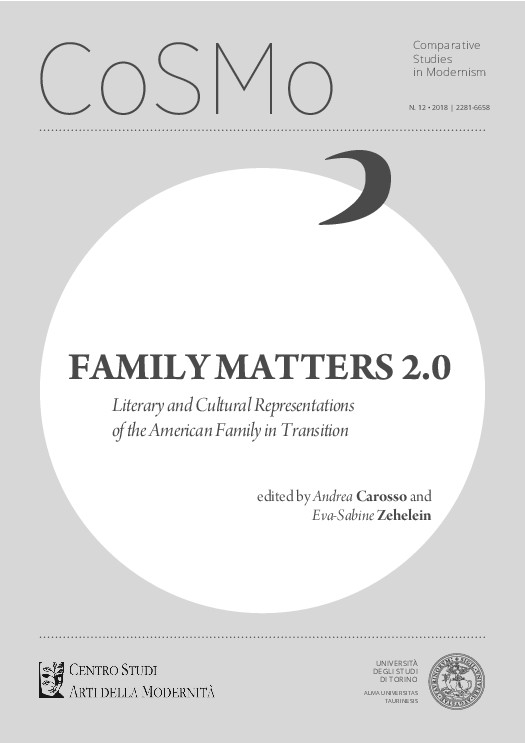Clone Families and Zombie Children: The Demise of the Nuclear Family in Dystopian and Postapocalyptic Narratives
DOI:
https://doi.org/10.13135/2281-6658/2611Abstract
Although dystopian and postapocalyptic narratives tend to be discussed primarily in terms of their exploration of society, they also prove to be an interesting, so far largely underestimated, context for examining cultural responses to fluctuating discourses on the family. Due to their characteristic range of themes and premises, both dystopian and postapocalyptic narratives may challenge notions of what “normal” family life looks like and what “family” means in the face of changing social realities, legal frameworks and reproductive technologies. The article discusses (re-)interpretations of what families may mean in a number of British and American dystopian and postapocalyptic novels (in particular recent ones) as well as in the successful TV series The Walking Dead.Downloads
Downloads
Published
Issue
Section
License
Authors keep the copyrights for their work and give the journal the work’s first publication copyright, which is at the same time licensed under a Creative Commons License – Attribution, which in turn allows other parties to share the work with an acknowledgement of the work's authorship and initial publication in this journal.
Content Licence

You are free to copy, distribute and transmit the work, and to adapt the work. You must attribute the work in the manner specified by the author or licensor (but not in any way that suggests that they endorse you or your use of the work).
Metadata licence

CoSMo published articles metadata are dedicated to the public domain by waiving all publisher's rights to the work worldwide under copyright law, including all related and neighboring rights, to the extent allowed by law.
You can copy, modify, distribute and perform the work, even for commercial purposes, all without asking permission.






